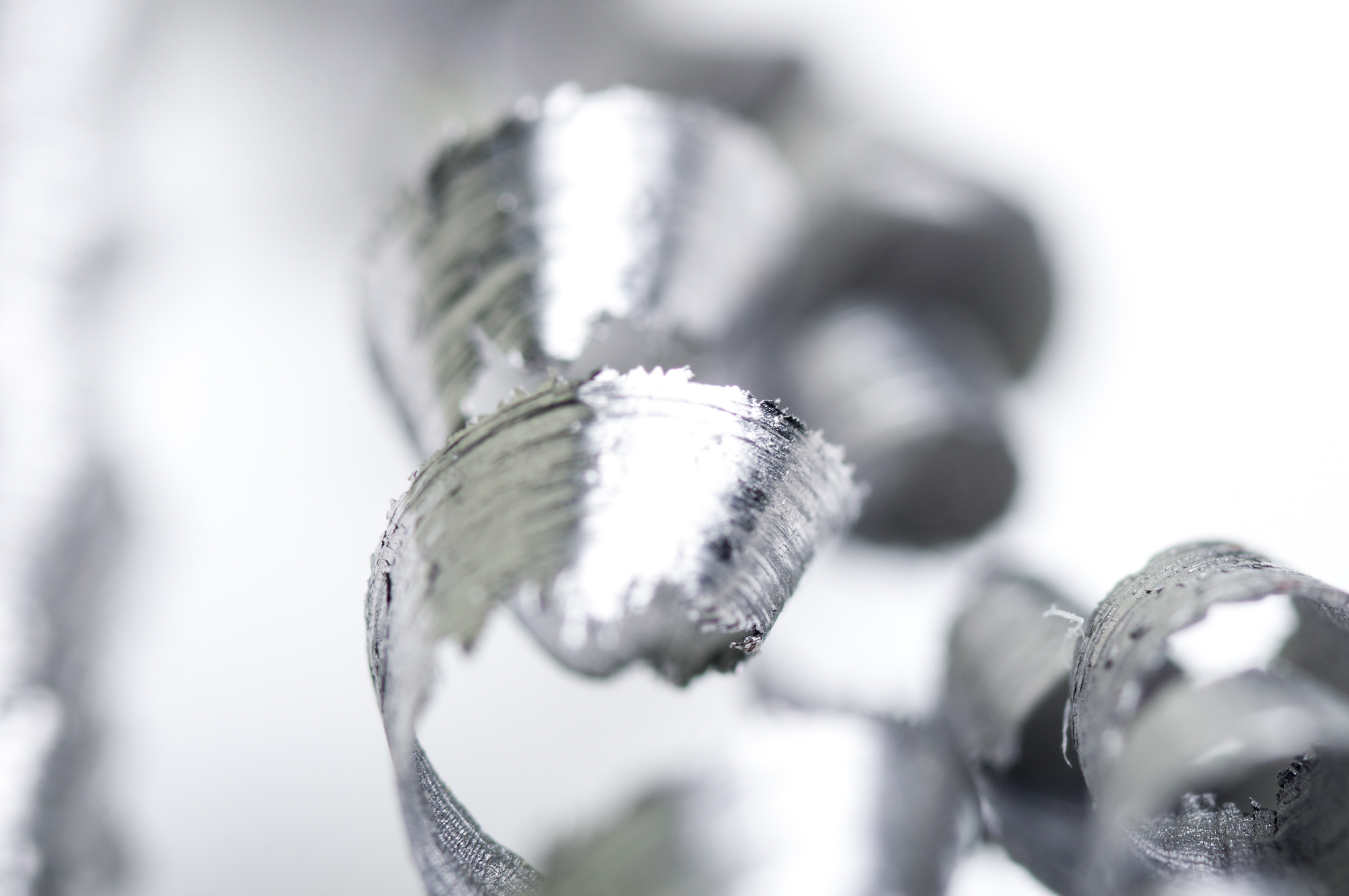Inconel 600
View AMS Numbers >
Nickel Inconel 600 (Image Credit – depositphotos.com)
Inconel® 600 is a member of the Inconel family of superalloys. A standard engineering material, this versatile nickel-chromium alloy provides high resistance to corrosion and heat, good oxidation resistance at higher temperatures, and good resistance in carbonizing and chloride-containing environments. Alloy 600 also provides excellent mechanical properties, with high strength and good workability. Ideal for applications in the food processing, nuclear engineering, aerospace, thermal processing, and chemical industries, this alloy handles temperatures ranging from cryogenic to 2000° F (1095° C.)
Inconel 600’s unique composition enables it to resist a broad range of corrosives. It’s superior to commercially pure nickel under oxidizing conditions, thanks mainly to its chromium content. While its high nickel content allows it to retain considerable resistance under reducing conditions as well as excellent resistance to alkaline solutions. Alloy 600 has fair resistance to strongly acidizing solutions, but the oxidizing of dissolved air isn’t enough to generate complete passivity and freedom of attack by mineral acids and organic acids.
Alloy 600 high is also resistant to corrosion by many organic and inorganic compounds. While the chromium content makes the alloy resistant to oxidizing conditions at high temperatures or in highly corrosive solutions. Not precipitation hardenable, Inconel 600 is strengthened only by cold work. A wide variety of desirable mechanical properties are obtainable with this alloy by combining cold working with thermal treatment. Inconel, which is a predominately nickel-chromium alloy, shouldn’t be confused with Incoloy, which has a nickel-iron-chromium alloy.
Tech Steel & Materials offers Inconel 600 in 4 sub-type specifications and in multiple shapes/forms:
- AMS 5540 (Plate, Sheet, and Strip)
- AMS 5580 (Tube, and custom Tubing)
- AMS 5665 (Bar, Forging, Ring, and Tube)
- AMS 5961 Wire
We offer a fully customized line of tube drawing and seamless tubing. To learn more about our custom tube services click here: Custom Tubing for Your Unique Application.
Uses of Inconel 600
Inconel 600 is used widely in the chemical industry, thanks to its strength and high corrosion resistance. Typical uses in this industry include heaters, stills, bubble towers, and processing condensers for fatty acids as well as tube, tube sheets, and flaking trays for producing sodium sulfide and for equipment handling abietic acid in producing pulp and paper goods. When heated, Inconel alloys form a thick yet stable oxide layer, which protects surfaces from increased attack.
Alloy 600 is also used in many applications in the heat-treating industry. The alloy’s strength and corrosion resistance at high temperatures make it ideal for furnace components, including mufflers, retorts, roller hearths, and heat-treating baskets and trays. Plus, Inconel 600 is used in aeronautics for engine and airframe components that need to withstand high temperatures like lockwire, turbine seals, and exhaust liners.
Alloy 600 is standard construction material in building nuclear reactors. It provides excellent corrosion resistance by high purity water, with no indication of chloride-ion stress-corrosion cracking in reactor water systems. Inconel 600 is produced to exacting specifications for nuclear applications and is referred to as Inconel 600T.
Machining and Working Instructions for Inconel Alloy 600
Alloy 600 is machinable into complex shapes, like pipe fittings, flanges, and valve parts. The main machining/cutting methods are drilling, boring, turning, grinding, and milling. This alloy is best machined using heavy-duty equipment and cutting tools large enough to withstand the loads and heat generated by the process. Tools must be sharp and have the correct geometry. The alloy is slightly more machinable than Type 304 stainless steel but slightly less machinable than type 303 free-machining stainless steel.
General machining characteristics of Inconel 600 include
- Large cutting forces and high cutting temperature, usually 1.5~2 times than carbon steel.
- The serious wear of cutting tools results in a very short service life.
- Serious work hardening during the machining.
- Very difficult to dispose of the chips during the machining process.
Several factors impact the alloy’s behavior during heating. These factors include the amount of cold work, grain size, chemical composition, and material dimensions. As a result, times and temperatures for heat treatment are generally experimentally determined. This alloy needs to be cleaned before it is heated in a sulfur-free atmosphere. Furnace atmosphere for forging and open annealing need to be slightly reducing to stop excessive oxidation. Inconel 600 can be bright-heated in a vacuum or dry hydrogen. Pickling is required for a bright surface.
Chemical Properties of Inconel 600
| Element | Percent |
| Nickel (plus Cobalt) (Min) | 72 |
| Chromium | 14-17 |
| Iron | 6-10 |
| Carbon (Max) | .15 |
| Manganese (Max) | 1 |
| Sulfur (Max) | .015 |
| Silicon (Max) | .5 |
| Copper (Max) | .5 |
Alloy 600 Physical Properties (Annealed)
| Property | Value |
| Tensile Strength | 80.0 ksi |
| Yield Strength at 0.2% Offset | 35.0 ksi |
| Elongation in 4D | 30% |
Additional Properties of Inconel 600
A broad range of strengths and hardness is obtainable with Inconel 600, depending on form and condition. Alloy 600 exhibits moderate yield strengths of 25,000 to 50,00 psi (172 to 345 MPa) in the annealed condition. Yield strengths in that range, combined with elongations of 55% to 35%, make Alloy 600 easy to fabricate. Inconel 600 features good impact strength at room temperatures and tough-to-brittle with decreasing temperatures.
Inconel 600 is readably fabricated by hot or cold working and joinable by standard weld, brazing, and soldering processes. While cold work can strengthen and harden the alloy, manufacturers can obtain a wide range of mechanical properties in finished parts by combining cold work and heat treatments.


 Tech Steel & Materials
Tech Steel & Materials